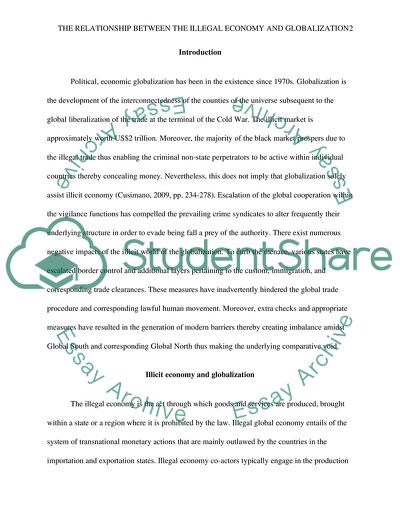Cite this document
(The Relationship Between the Illegal Economy and Globalization Coursework Example | Topics and Well Written Essays - 3500 words, n.d.)
The Relationship Between the Illegal Economy and Globalization Coursework Example | Topics and Well Written Essays - 3500 words. https://studentshare.org/macro-microeconomics/1862264-what-is-the-relationship-between-the-transnational-illicit-economy-and-globalisation
The Relationship Between the Illegal Economy and Globalization Coursework Example | Topics and Well Written Essays - 3500 words. https://studentshare.org/macro-microeconomics/1862264-what-is-the-relationship-between-the-transnational-illicit-economy-and-globalisation
(The Relationship Between the Illegal Economy and Globalization Coursework Example | Topics and Well Written Essays - 3500 Words)
The Relationship Between the Illegal Economy and Globalization Coursework Example | Topics and Well Written Essays - 3500 Words. https://studentshare.org/macro-microeconomics/1862264-what-is-the-relationship-between-the-transnational-illicit-economy-and-globalisation.
The Relationship Between the Illegal Economy and Globalization Coursework Example | Topics and Well Written Essays - 3500 Words. https://studentshare.org/macro-microeconomics/1862264-what-is-the-relationship-between-the-transnational-illicit-economy-and-globalisation.
“The Relationship Between the Illegal Economy and Globalization Coursework Example | Topics and Well Written Essays - 3500 Words”. https://studentshare.org/macro-microeconomics/1862264-what-is-the-relationship-between-the-transnational-illicit-economy-and-globalisation.


